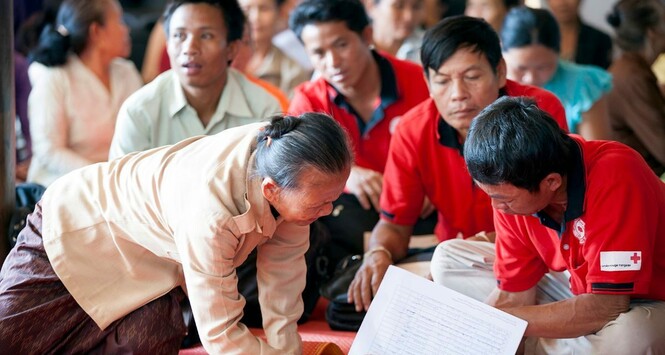
While acting at all times pursuant to the Fundamental Principles, National Societies are expected to have unique links with the public authorities, different both from governmental departments and from non-governmental organisations.
While all recognised National Societies benefit from official acknowledgment of their role through a Red Cross or Red Crescent law or decree, the expression of this role in other legal, policy and planning documents varies significantly from country to country.
Yet National Society activities cover a broad range of sectors including disaster risk management (including supporting people displaced), public health (including blood, ambulance, and first aid services), social cohesion and support and support for vulnerable migrants and refugees, among others. Legislation, policies, and agreements play a key role in each of these fields and may be important for how the auxiliary role is perceived and carried out in practice.
The IFRC’s Disaster Law Programme, in close collaboration with Asia Pacific regional technical leads for National Society Development, Civil-Military, Health, Migration and Displacement, has recently developed a research project proposal which aims to map and define the auxiliary role of National Societies as provided in legislation, policies and other agreements including MoUs.
IFRC is reaching out to its research partners to collaborate on the mapping. In the meantime, if your National Society is interested in participating in the mapping, or in other ways engage in the research process, please get in touch with the Disaster Law team (contact Isabelle Granger, Global Coordinator Legislative Advocacy, isabelle.granger@ifrc.org). IFRC will be reaching out to selected National Societies directly in due course as the proposal progresses and the research is launched.